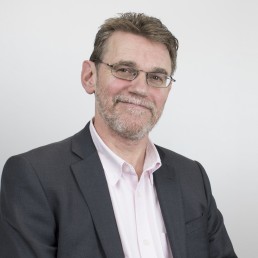Last week BT and Facebook jointly hosted a launch event at BT Tower for the UK’s TIP Ecosystem Acceleration Centre (TEAC). TIP (the Telecom Infra Project), launched by Facebook at Mobile World Congress 2016, and with most of the world’s major telcos now included as members, is an initiative aimed at developing new, disaggregated approaches to building telecoms infrastructure. From Facebook’s perspective, the aim of TIP is to enable the currently unconnected part of the world’s population to access internet services, by making it cheaper and quicker to provide them with connectivity.
The TEACs are facilities set up by member telcos to host selected start-up companies doing innovative work that could further the aims of TIP, and to provide venture funding to help them develop their technology. BT’s TEAC is the first to launch; Korea’s SK Telecom and Germany’s Deutsche Telekom have announced that they also intend to establish TEACs.
The UK launch event took the form of a competition in which six start-ups pitched for the three places in the UK TEAC that were on offer, as well as access to a £135 million venture capital fund. The three companies that won give some flavour of the kind of innovation that the TEACs are aiming to foster. They were:
- KETS, which is developing technology for small, lightweight security appliances based on the principles of quantum computing
- Unmanned Life, developer of a system for managing the connectivity requirements of fast-moving, autonomous objects
- Zeetta Networks, which provides an operating system for provision of services with full control and QoS over heterogeneous networks, through on-demand network slicing
TIP is interesting for several reasons, one of which is that it marks a new phase in the evolution of relationships between telecoms network operators and Facebook. Initially, telcos came to view Facebook (along with other “OTTs” such as Google and Netflix) as a company exploiting their investments in network capacity to reach telcos’ customers over their heads, and to usurp their relationship with those customers. Telcos’ wariness increased as Facebook started to offer communications services, and as those services started to substitute for usage of telcos’ communications services. As the extent of Facebook’s popularity became clear, telcos have sought to move on from their wary attitude to Facebook, and instead to seek partnerships through arrangements such as zero-rating the data used by customers to access Facebook’s services. However, although such partnerships give telcos some scope for competitive differentiation, their main beneficiary is Facebook.
The relationship between BT and Facebook through TIP feels much more like a partnership of equals, with complementary interests and mutual benefits. The goal of providing connectivity infrastructure that can be deployed and operated more cheaply and flexibly than traditional networks is crucial to the strategies of both players. BT needs to maintain its margins, as connectivity revenue growth gets increasingly difficult, and it needs to provision connectivity to customers in remote locations for the lowest cost possible. For Facebook, business growth depends on growth in user numbers, and as growth in adoption slows down in developed markets, it will be increasingly important to Facebook that people who currently have poor or no internet access should gain good access, so that they can start using Facebook’s services.
Of course, TIP is far from being BT’s only forum for innovative research and development. We saw many examples of the advanced ideas being developed and trialled by BT and its partners at the Adastral Park research centre, when BT held its Innovation Day in June this year. These included some new ideas for provisioning access (and backhaul) in remote locations such as the “Air Mast”, a tethered balloon equipped with a small-cell base station. Facebook has a lot of cachet among software start-ups, though, and if the level of interest in places is any indication, its joint sponsorship of TIP and the UK’s TEAC is proving a powerful draw.
If you want to learn more about this topic, or have any question on European Mobility, please contact John Delaney.

